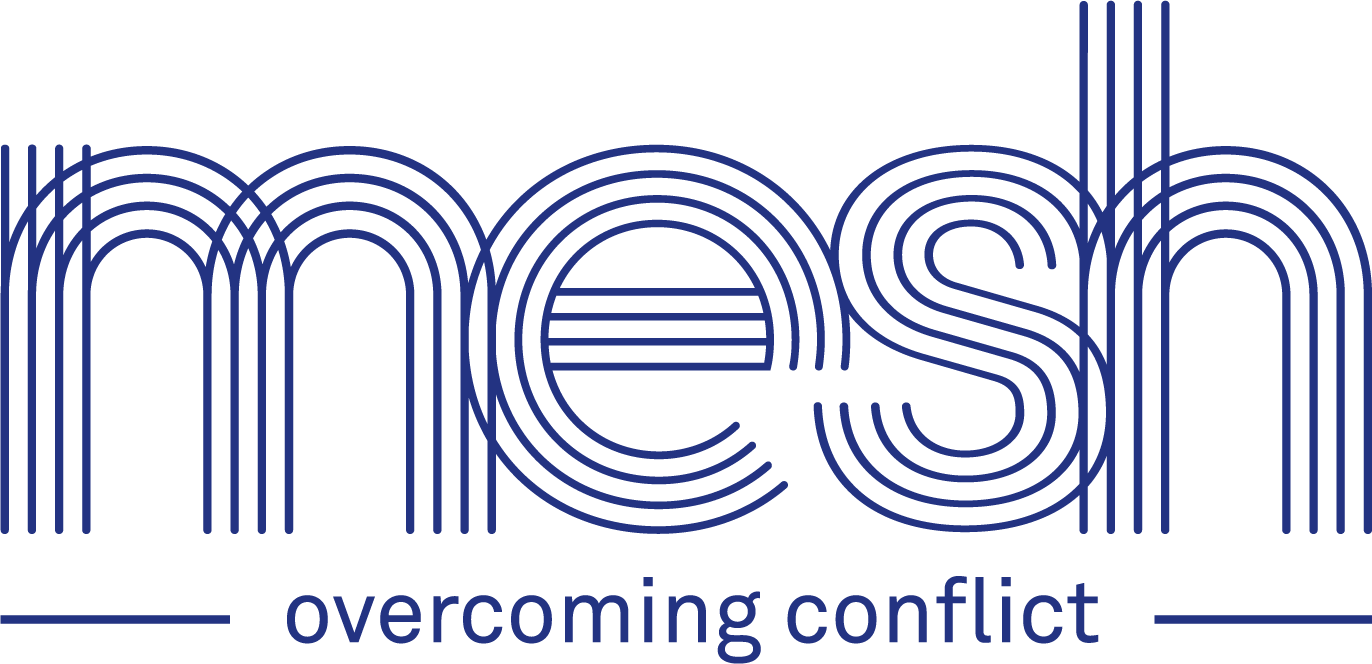
All about Mediation (FAQ)
Mediation is a way of sorting out your dispute using talking, listening,
and co-operation with the help of people with an outside perspective.
Our approach uses ‘transformative mediation’, which means that people leave us
with the skills to help them handle and avoid conflict in future. Mediators facilitate conversations but won’t make judgments or tell you what to do – instead mediation
gives you the questions, insight and support to find and agree your own direction.
How does it work?
Mediators don’t take sides – they help people to find new ways to look at their challenges and respond to them. Often people feel differently just knowing they will have the chance to speak and be listened to, without judgement – it can make it easier to think of new ways to deal with conflicts that have been building over time, or have just become stuck. Our approach works like this:
Our mediators meet with each person involved in a dispute, listen to them and help them decide what they want to do next.
The next step might involve the mediator taking information to the other person / people involved, or it might mean setting up a meeting so everyone can talk and listen together.
Control over the process always stays with the people involved.
Quite often, solutions come naturally from people talking calmly and openly with each other,
with a mediator present, ‘unblocking’ the dispute so they can agree a solution.Agreements are made by choice – they are not legally binding and can’t be ‘enforced’, but they are usually honoured because they are the best way to resolve their conflict.
How will I know if it could work for me?
Mediation doesn’t work in all situations but it helps in most, so we always start with determining whether mediation is right for you, which we’ll do in a phone conversation before we take on your case. Mediation can be used at any point during a conflict, including during the early stages of disputes and after separation, divorce or workplace disputes.
I’ve been told I need a MIAM – can MESH help?
Yes – a MIAM, or a Mediation Advice and Information Meeting is something that courts require before an application to court can be made in cases of separation and divorce. A MIAM proves that you have discussed the option of mediation, which is the way the courts prefer you to resolve family disputes such as divorce settlements and access to children, and is also much less costly than court proceedings.
A MIAM session will end either with an agreement to further mediation sessions, or the mediator will issue a MIAM form to instruct the courts that mediation is unlikely to resolve matters. You are then able to issue court proceedings.
We’re sorry that at present we are unable to take on Legal Aid cases.
Does mediation mean I need to sit with the person
I’m in conflict with?
No. It’s often inappropriate for parties to be in the same space and if people really don’t feel comfortable together then we can run separate mediation sessions. Mediation can still be an effective way to resolve conflict even if you are not in the same room. Sometimes, two mediators work on a case and come together to discuss your dispute on your behalf.
What does a mediation session involve?
We’ll shape our sessions to suit you and your circumstances, but they usually involve a balance of talking and understanding and work a bit like this:
Whether you’re meeting in the same room at the same time, or separately, your mediator will ‘facilitate’ your conversation, so everyone gets the chance to speak.
They keep the conversation focused on problem solving, not allowing and one party to dominate and keeping it as calm as possible.
They will summarise understanding as you go along, so what everyone means is checked, clear and agreed.
Your mediator might ask questions as a way to discuss and agree priorities, find common ground and to make sure you understand other perspectives.
The sessions are relaxed and safe. Everything you say is confidential and it’s your mediator’s job to be constructive, supportive and neutral.
An ‘outcomes statement’ will be sent to you following your mediation session, summarising what has been discussed and agreed by both parties.
Because it’s our aim to keep the mediation process as short as possible, you’ll review the progress you’ve made and could collectively decide that you have made an agreement you’re both going to work to, and that you don’t need any further sessions.
Alternatively, you might be advised, or request to continue to another session.
How are mediators qualified to do this?
All of our mediators are both professionally qualified and highly experienced. You can find out more about our mediators and their skills and experience on Our People page.
How can I access your neighbour mediation services?
If you are a Sheffield City Council Housing tenant, you may be referred by your housing officer and you’ll access the service for free. If your neighbour doesn’t agree to mediation we can still offer you some conflict coaching to help you deal with the ongoing situation.
If you are a private tenant or home owner , there will be a charge for mediation services. You will also need to have discussed and agreed to try mediation with your neighbour. To help, download a leaflet to invite your neighbour to try mediation as a way to resolve your dispute. If you are both willing to try it, you can download and complete a neighbour mediation referral form
What happens in neighbour mediation?
If you have been referred to us by a Housing Officer, we will call you for an initial assessmentand if your case is accepted two mediators will visit you at home and support you through the mediation process.
If you come to us as private clients, you will first be contacted by a mediator for an assessment and then invited to our office to attend an individual session with the mediator.
Both referred and private clients with then, if appropriate, be invited to attend a joint meeting with the neighbour. If you are a council tenant this will be held at a neutral venue somewhere near where you live. If you are a private client you will be invited again to attend the MESH office.
There are alternatives to face to face meetings together but they are encouraged.
Participation is voluntary and the outcome of sessions will be summarised and eventually an agreement document drawn up. Each party will receive a copy.
If your case has been referred by the Council, this agreement WILL NOT be shared with them in full. We may share some key agreements with your housing officer but most of what has been discussed remains confidential.
The agreement document summarises what you have agreed and captures how the way you feel might have changed – it gives both parties something to work on and acts as a reminder ofwhat has been agreed. They are not legally binding and can’t be ‘enforced’, but agreements are usually honoured because they work.
Approximately 8 weeks after the completion of mediation you will be contacted again to see how things are working out.
How does family mediation work?
The agreements you reach are made by choice – they are not legally binding until you take them to a solicitor for a court order.
Agreements are usually honoured because people understand them as the best way to resolve their conflict.
Your mediator can’t give you legal information; if you want legal advice from a solicitor, we can help you find one.
Most sessions work towards drawing up an agreement. This ‘outcomes statement’ summarises what has been discussed and agreed by both parties.
Your mediator will talk to you after each session about what is needed next, with the aim of keeping the mediation process as efficient as possible and reaching a positive lasting agreement.
